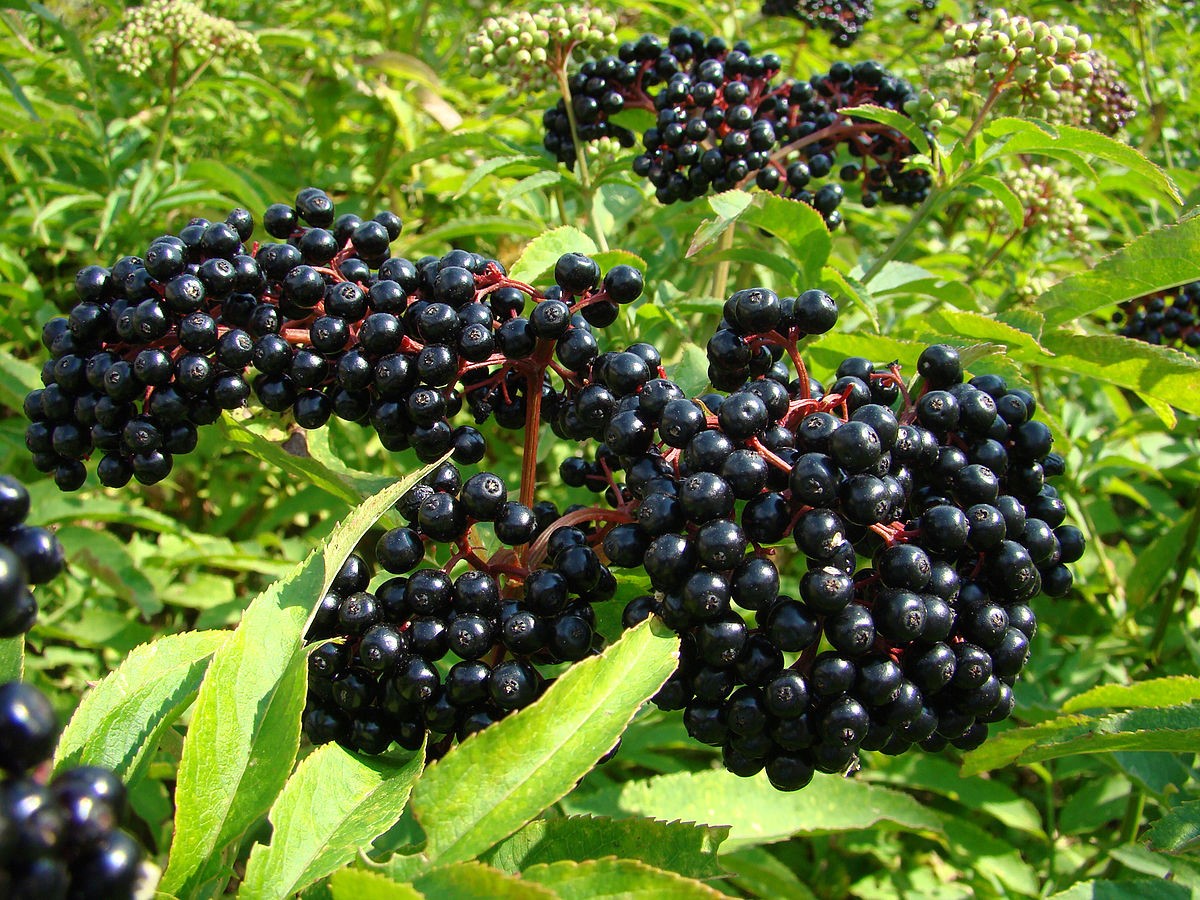Like blackcurrant, elderberry is a natural anti-viral that shows promise in protecting against both seasonal and H1N1 swine influenza. Elderberry anthocyanins have been found to bind to H1N1 and block the ability of the virus to infect host cells. Researchers have favorably compared its activity to that of oseltamivir (Tamiflu®).1 A randomized, double-blind, placebo-controlled study on a standardized elderberry product found that it reduced the duration of the flu symptoms to just 3-4 days.2 The study also showed it to be effective against 10 different strains of influenza. Elderberry also reduces lipid peroxides, neutralizes lipid peroxyl radicals, inhibits LDL oxidation3, and offers significant protection to endothelial cells against oxidative stress.4
1. Roschek B Jr, Fink RC, McMichael MD, Li D, Alberte RS. Elderberry flavonoids bind to and prevent H1N1 infection in vitro. Phytochemistry. 2009 Jul;70(10):1255-61.
2. Barak V, Halperin T, Kalickman I. The effect of Sambucol, a black elderberry-based, natural product, on the production of human cytokines: I. Inflammatory cytokines. Eur Cytokine Netw. 2001 Apr-Jun;12(2):290-6.
3. Ciocoiu M, Miron A, Mares L, et al. The effects of Sambucus nigra polyphenols on oxidative stress and metabolic disorders in experiemental diabetes mellitus. J Physiol Biochem. 2009 Sep;65(3):297-304.
4. Youdim KA, Martin A, Joseph JA. Incorporation of the elderberry anthocyanins by endothelial cells increases protection against oxidative stress. Free Radic Biol Med. 2000 Jul 1;29(1):51-60.
*These statements have not been evaluated by the Food and Drug Administration.
These products are not intended to diagnose, treat, cure, or prevent any disease.



